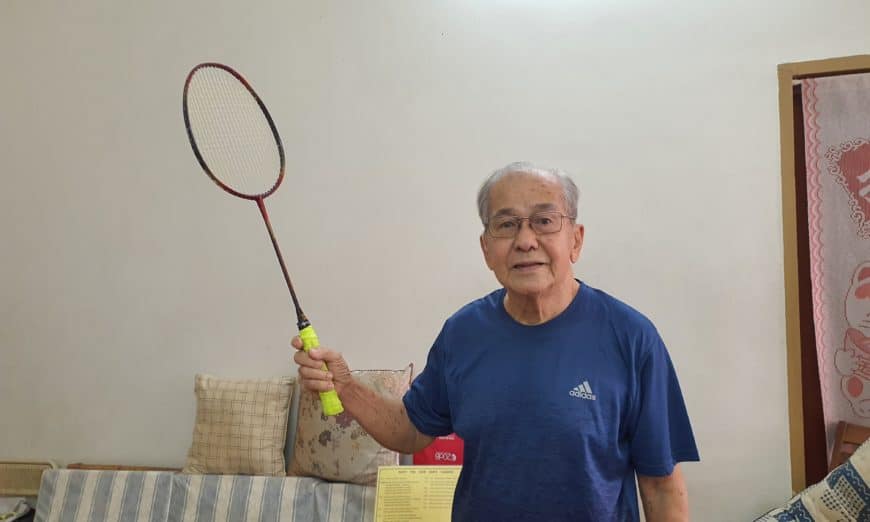FORMER Malaysian Thomas Cup winning captain Datuk Teh Kew San turns 87 today and takes each day in stride and as a blessing.
He retains his ardour for the game, making it a point to sweat it out at the Penang YMCA badminton hall once every week. An octogenarian on court wielding a racquet is a rare sight, in badminton or any other sport.
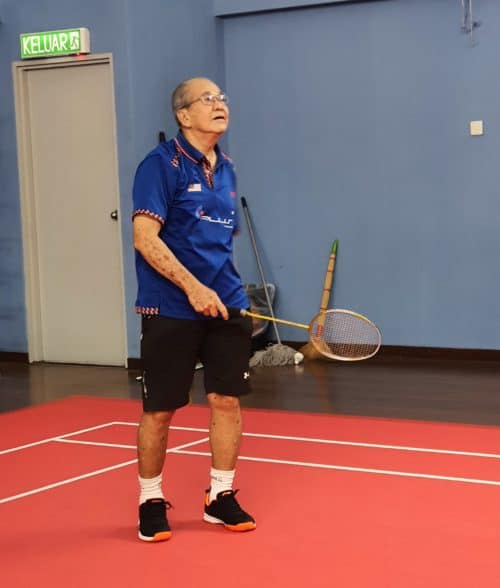
Because of his advanced years, Kew San indulges only in stroke play. His flicks and lobs are still steady, and his backhand returns crisp and accurate.
After a few minutes of stroking the shuttle, beads of perspiration can be seen glistening on the former maestro’s brow. He then takes a break, graciously allowing other players to use the court.
His group consists of former Uber Cupper Yap Hei Ling, his wife Datin Ng Mei Lin, daughter Karen, and several young and veteran players.
“I can’t stop playing badminton. I was anaemic and have a family history of high cholesterol. But the game keeps me pushing to stay as healthy as I can,” said the captain of the Malaysian team that won the 1967 Thomas Cup against arch-rivals Indonesia.
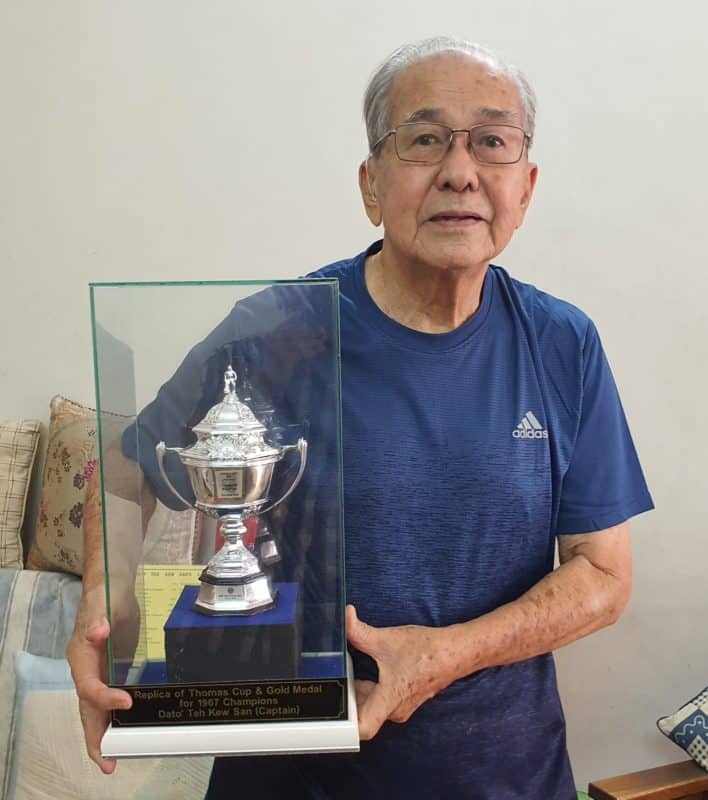
He has several memorable championships under his belt but the controversial 1967 Thomas Cup final in Jakarta remains indelible, coming at a time when the Indonesia-Malaysia Confrontation (1963-65) had already ended but its effects still lingered.
Malaysia was leading 4-3 in the best-of-nine match-ups when play was halted in the eighth match owing to unruly crowd behaviour.
Malaysia’s top doubles pair of Ng Boon Bee and Tan Yee Khan were fancied to score the vital fifth point in their match against Muljadi and Agus Susanto.
The Malaysian hopes were high as Boon Bee and Yee Khan romped to a 15-2 win in the first game and led 10-2 in the second.
But the pair then let the lead slip away from unforced errors and disturbances from braying Indonesian fans, some of whom were reported to have used flashlights on the faces of Boon Bee and Yee Khan.
Boon Bee and Yee Khan lost the second game 13-18.
Tournament referee Herbert Scheele then requested the Indonesian authorities to help restore order but when the vociferous fans were not removed, Scheele, fearing for the players’ safety, declared the tie abandoned.
The International Badminton Federation (IBF) subsequently decided that the two countries must resume play in New Zealand, but Indonesia rejected the decision, thus forfeiting the remaining matches.
Malaysia was later awarded the Thomas Cup, regaining it officially by a 6-3 margin.
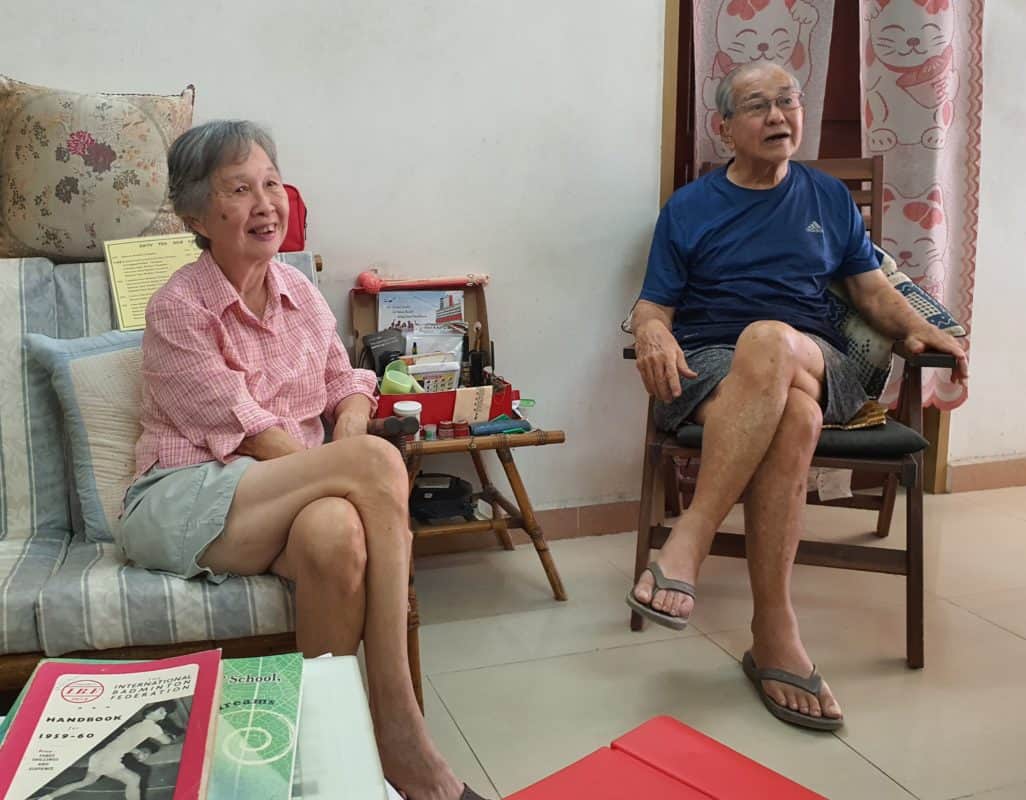
“Actually, they had started to use torch lights to shine on my face when I was playing (against Muljadi),” Kew San recalled in an interview he granted to former Bernama chief executive officer and editor-in-chief Datuk Yong Soo Heong and I (from Buletin Mutiara) when we called at his house in Mount Erskine recently.
“When the fan trouble started during Boon Bee and Yee Khan’s match, (Tan) Aik Huang and I were in the dressing room resting. The dressing room was located outside the stadium. Then, Abdul Rahman (another Malaysian player) came to join us.
“Three of us were in the room and if anything had happened to us, nobody would know. The Malaysian team was eventually escorted back to the hotel, but we dared not eat even in the hotel. Overall, it was the longest three weeks in my life there.”
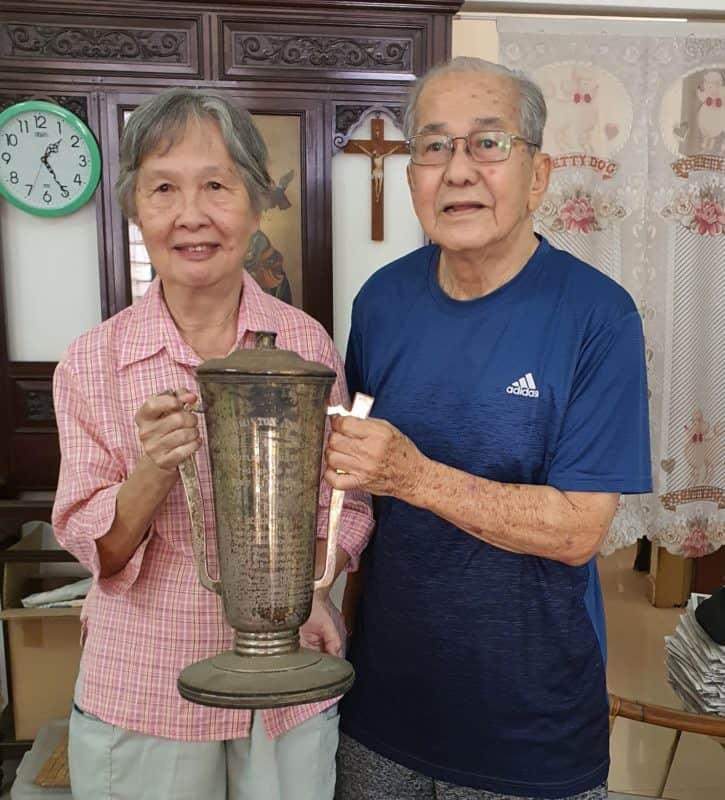
Kew San said he felt something was amiss when they checked into the hotel for the Cup final. The players were put on different floors, with Kew San and assistant team manager Tan Beng Teik staying on the third floor, Boon Bee and Yee Khan on the fourth floor and Aik Huang and Yew Cheng Hoe on the fifth floor.
While Kew San was delighted that the Malaysian team was sent to England in 1968 to receive the Thomas Cup, he was saddened the BA of Malaysia excluded Billy Ng, a member of the victorious 1967 Thomas Cup team, from the travelling party.
That was Kew San’s fourth and final Thomas Cup, having been a member of the 1958 and 1961 Malayan teams and 1964 Malaysian one.
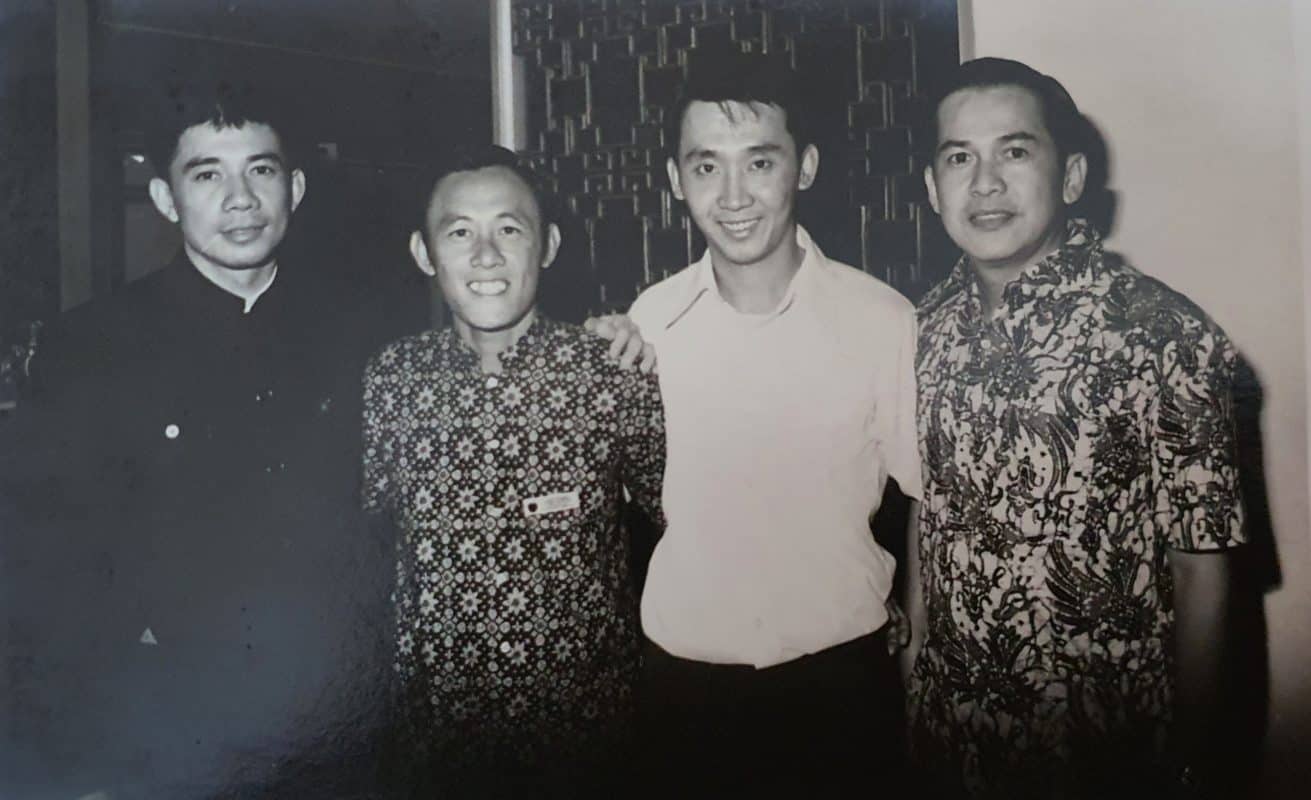
Kew San belongs to a rare breed of athletes.
In badminton, he was considered an “all-rounder” for his prowess in the singles, doubles and mixed doubles.
Kew San’s singles titles included the Mexico City International in 1960 and the Asian Badminton Championship in 1962.
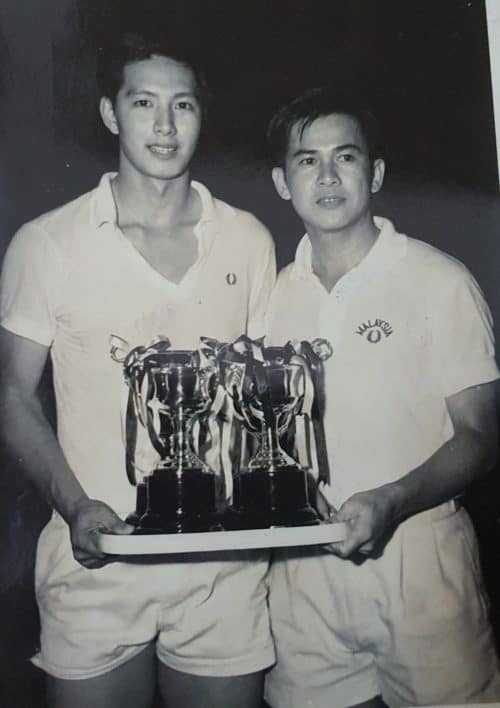
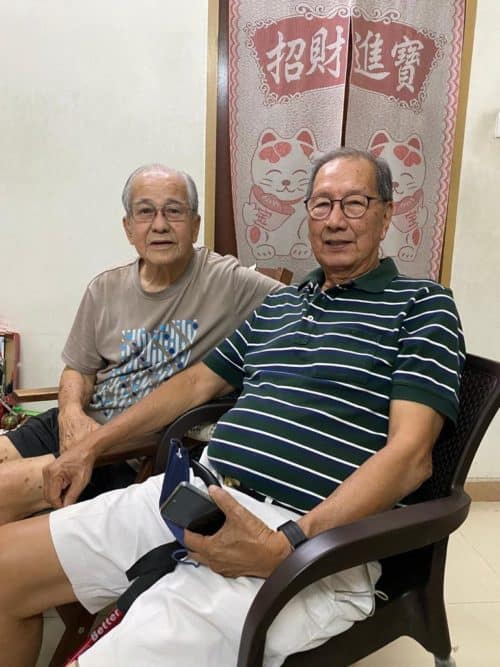
He formed a potent men’s doubles partnership with Lim Say Hup. Their banner year was 1959, sweeping the Glasgow World Invitation, All-England, Canada Open, US Open, Malaysian Open and Mexico International titles.
Kew San excelled in the mixed doubles, too, partnering Mei Ling to win the 1962 Malayan Open and the 1965 Malaysian event.
He was not just an “all-rounder” in badminton; he was remarkably versatile at other sports.
He represented Penang in inter-state cricket even before he joined the state badminton team.
Cricket’s emphasis on footwork, wristy excellence, and getting behind the line of the ball aided and abetted his approach to hockey at which he was good enough to represent Chinese Recreation Club in the keenly contested and followed domestic league.
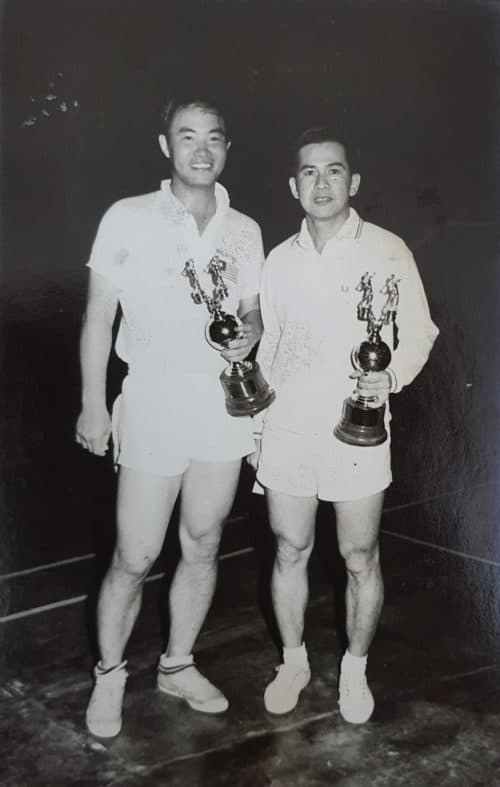
Kew San’s affinity for ball games enabled him to be good at football at which he was selected to play for his employers, Penang Island Municipal Council (now Penang Island City Council) where he ended his occupational career as chief clerk.
To round off his versatility he played basketball for his secondary school, the Anglo Chinese School (ACS) Boys.
Methodist Boys School (formerly known as ACS) has honoured Kew San with a prominent niche in its Hall of Fame.
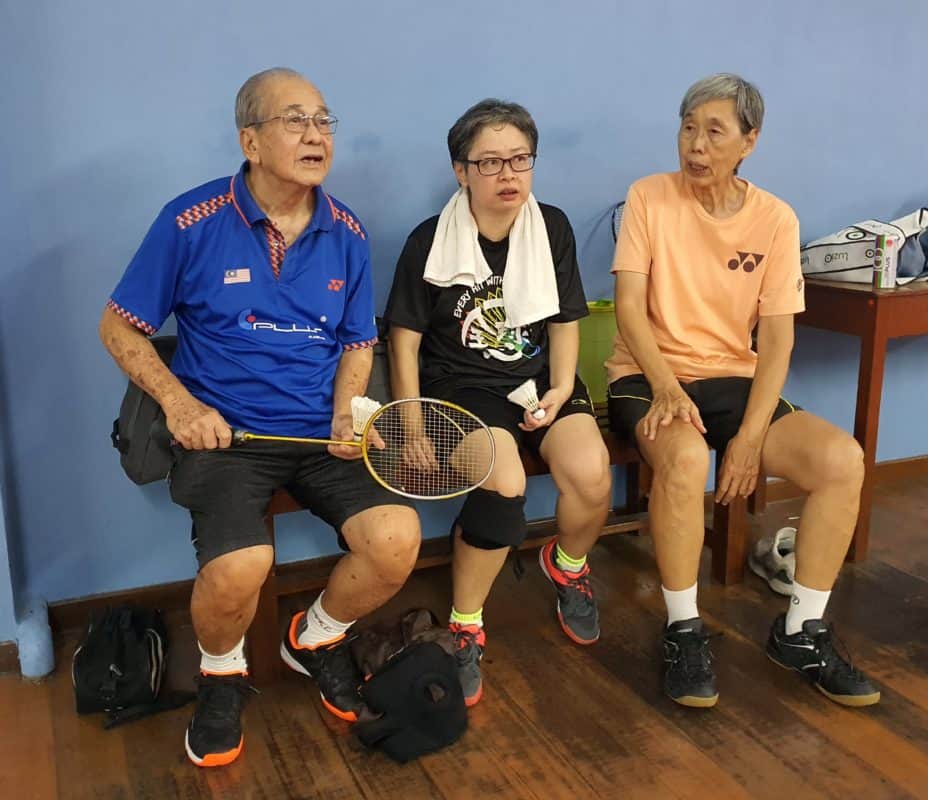
He began schooling at Li Teik Primary. One day in 1941 on the way home from school, he saw Japanese planes fly overhead.
An innocent and naive Kew San clapped excitedly at the flypast. He was horrified the next day when the planes dropped bombs on Chulia Street in George Town.
Another frightful encounter with a few Japanese soldiers came shortly after. While he was selling kuih for his mother in his neighbourhood, a few sentries saw him and gave chase. Scared, the small boy ran as fast as he could and wet his pants from the ordeal.
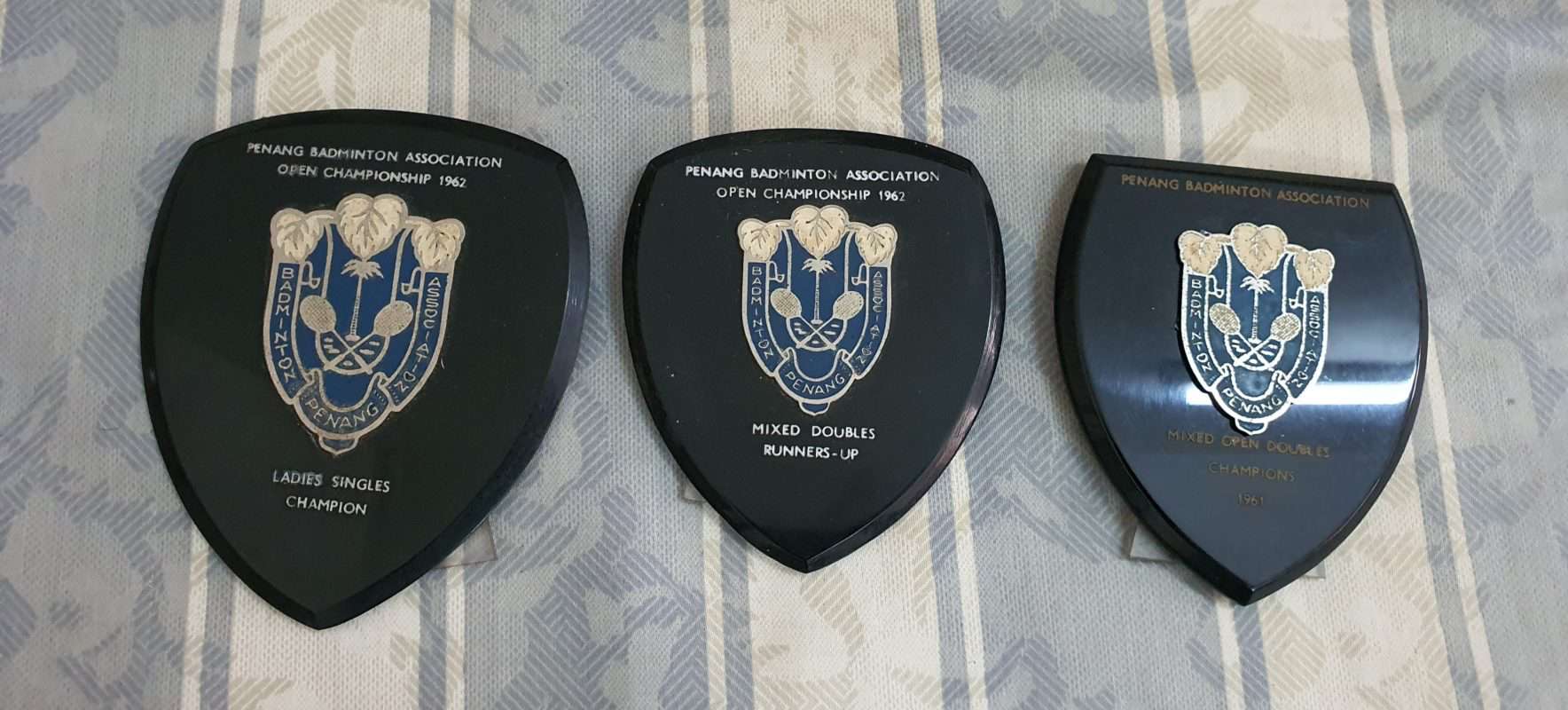
Kew San and Mei Ling have been married for 56 years. They have two adult children, Thomas and Karen, and two grandchildren.
They got to know each other while playing exhibition matches in Alor Setar after Kew San had returned from the 1958 Thomas Cup in Singapore. The Malayan team at that time finished runners-up to Indonesia.
“My father drove us back after the exhibition matches because Kew San was supposed to play cricket for the state team the following day.
“His foot was struck by a cricket ball during the match. The toe was badly swollen and the nail came off. It took six months for his toenail to grow back,” Mei Ling said.
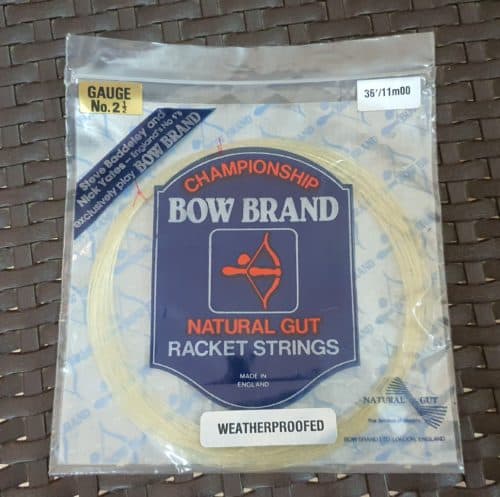
Asked about their badminton partnership, Mei Ling said she had forgotten how many championships they had won but acknowledged that Kew San was then on the way down in singles.
“We quarrelled sometimes during practice. You know why? He liked the opponents to take the lead first and then would tell me to catch up and play faster. If I don’t, he would mumble and mumble. So, I got fed up and hit the shuttle out intentionally,” said Mei Ling, glancing at her husband with an affectionate smile.
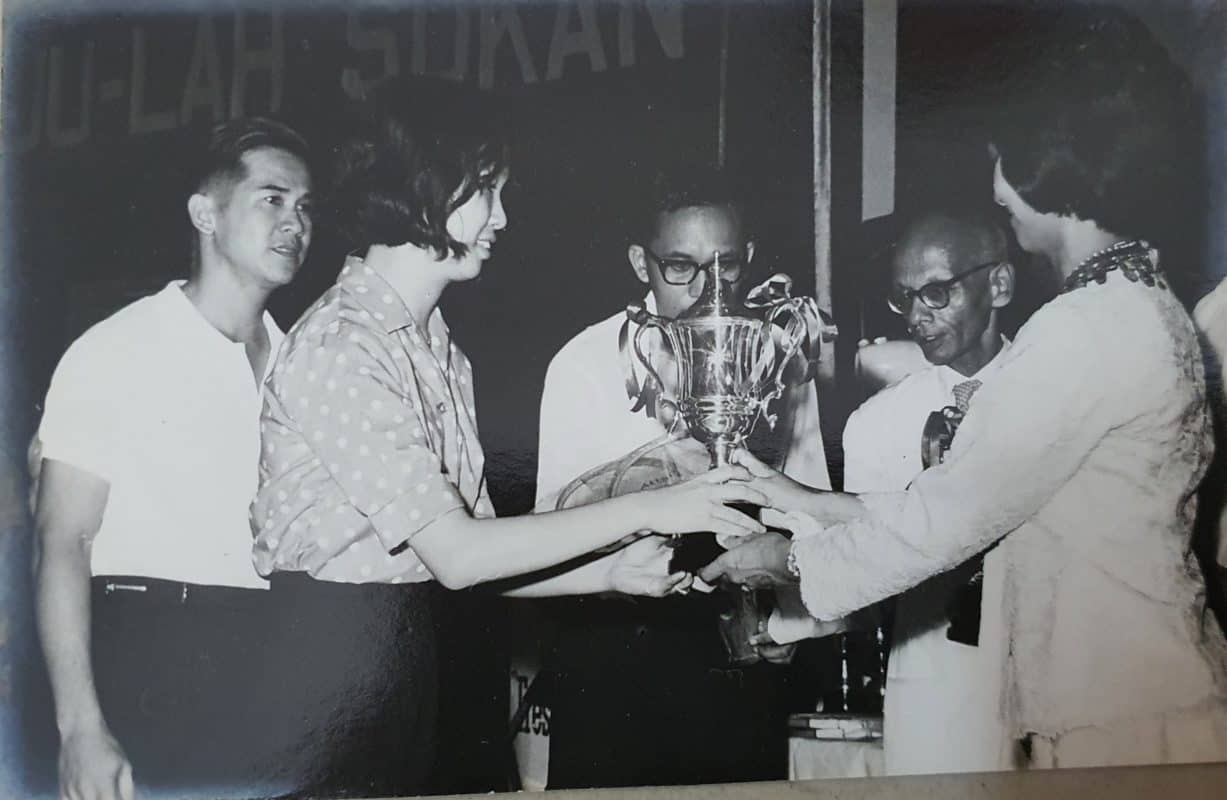
In the course of his glorious exploits for the country, Kew San had to endure the thorns and thistles that were incidental to the pursuit.
He suffered blisters in one All England tournament and had to undergo an operation in Middlesex Hospital in London.
Allowances given for overseas tournament, if any, were insufficient. In fact, they were derisively small compared to what national shuttlers receive today.
Moreover, most national players of Kew San’s era had to take their own leave when they were chosen to represent the country.
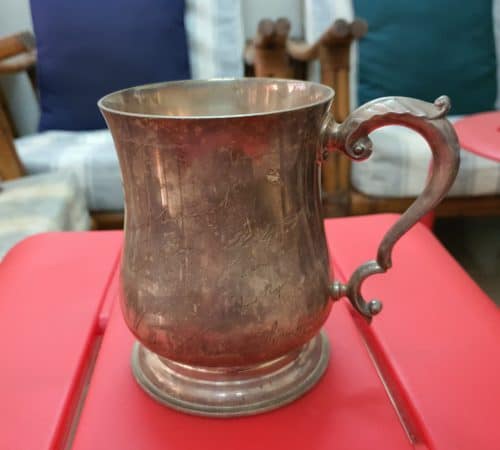
“Those days they (BAM) did not take care of the players. In fact, my office colleagues passed the hat around to help me. My no pay leave was not reimbursed by BAM for the two world tours in 1959 and 1960.
“We could not afford to attend the official dinner when we were in England. How could we? We have to spend money on transport to get there.
“And when I had used up my full 15 days of annual leave, I had to take no pay leave for tournaments,” Kew San said.
In 1968, he had to give the Thomas Cup victory parade in Sabah a miss as he could not wear shoes due to blistered feet.
Another disappointment came when he was left out of the national team for their first exhibition match in China despite being the national coach. Many top officials from the state associations instead made the historic trip, being able to foot their own expenses.
He had to apply for a pass to watch the 1992 Thomas Cup final in Kuala Lumpur but unfortunately, the old stars, like him, were each given a pass that did not entitle them to a seat.
Most heartbreaking of all was when he received news of the death of his newborn baby while playing in a tournament in Pahang about 55 years ago. He immediately flew back to Penang.
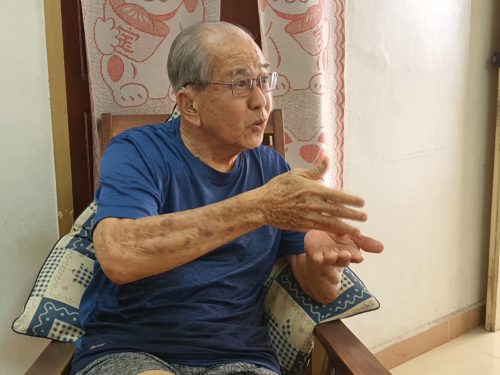
Kew San has to endure much travail in a long career.
No matter, he cherishes the many sweet memories and friendships that the game had brought him.
When you talk about the game to him, his face lights up even though he is hard of hearing. The fact he can still hold a racquet and stroke the shuttle are enough to bring a smile to his face. Bad memories fade in its glow.
Story by K.H. Ong
Pix by K.H. Ong and courtesy of Datuk Teh Kew San

